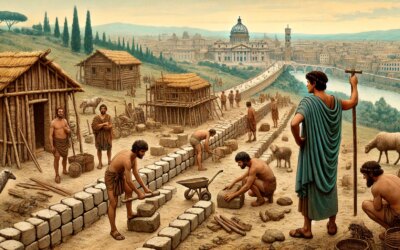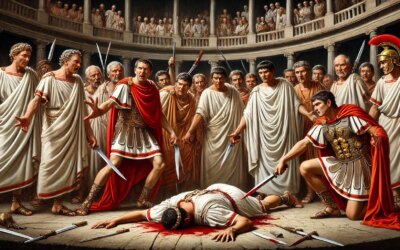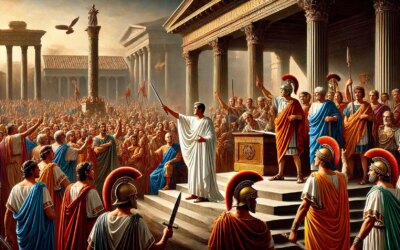Introduction
The founding of Rome is a story woven from both legend and history, blending mythology with archaeological discoveries. According to Roman tradition, the city was established on April 21, 753 BCE, by Romulus, its first king. While the tale of Romulus and Remus remains an enduring part of Roman identity, evidence suggests that Rome’s origins were far more complex, rooted in the gradual unification of settlements on the Palatine Hill. Understanding the real and mythical origins of Rome provides insight into the city’s cultural and political foundations.
The Legend of Romulus and Remus
The most famous account of Rome’s founding comes from ancient Roman historians such as Livy and Virgil. According to legend, the twin brothers Romulus and Remus were the sons of Mars, the god of war, and Rhea Silvia, a Vestal Virgin. Threatened by their great-uncle Amulius, who feared they would claim his throne, the twins were cast into the Tiber River in a basket.
Miraculously, they survived and were nurtured by a she-wolf in a cave on the Palatine Hill. Later, they were found by a shepherd named Faustulus, who raised them. As adults, Romulus and Remus decided to establish a city, but a dispute over its location led to a fatal confrontation—Romulus killed his brother and named the city after himself, becoming its first ruler.
Archaeological Evidence of Early Rome
While the legend of Romulus and Remus is captivating, archaeological findings suggest that Rome’s origins lie in the unification of early Latin tribes. Excavations on the Palatine Hill have uncovered evidence of primitive huts dating back to the 8th century BCE, supporting the idea that small settlements gradually merged into a single community.
The early Romans, likely influenced by Etruscan and Greek cultures, developed a structured society that would later form the foundations of the Roman Republic. The presence of burial sites, fortifications, and early temples points to an organized and growing settlement, far removed from the purely mythical account of its founding.
The Symbolism of Rome’s Founding
Despite the blending of myth and history, the story of Romulus and Remus played a crucial role in shaping Roman identity. It emphasized themes of divine favor, strength, and perseverance—qualities that Romans prided themselves on. The idea of fratricide, with Romulus killing Remus, also foreshadowed the internal conflicts that would later challenge Rome’s unity.
Conclusion
The founding of Rome remains one of the most fascinating and debated topics in ancient history. Whether viewed through the lens of mythology or archaeology, its origins reflect the resilience and ambition that would define the Roman civilization for centuries to come. From a small settlement on the Palatine Hill, Rome would grow into one of the most powerful empires the world has ever seen.






